From 4 years of experience running my SAAS business, I’ve learned that while marketing and branding can get those leads to your storefront, it’s social proof that seals the deal.
- What’s the first thing you do when you’re unsure about a purchase?
- You check out the reviews, right?
You want to see what other customers are saying, how many star ratings it has, and whether or not it’s worth your hard-earned cash.
That’s exactly what your potential customers are doing too!
In fact, studies show that a whopping 97% of customers read online reviews before making a purchase.
So, if you’re not already adding social proof to your marketing strategy, you’re missing out on a huge opportunity to boost those sales and crush your conversion rate goals.
In this article, I’ll break down the psychology behind social proof, explore the different types of social proof, and share some killer tactics to make it work for your business.
Plus, I’ll throw in some real-world examples and case studies to get those creative juices flowing. Let’s dive in!
The psychology of social proof
In the book “Influence,” psychologist Robert Cialdini first used the term “social proof.”
Cialdini’s social proof theory basically says that when people are uncertain about what to do in a situation, they look to others for guidance.
It’s like going to a party and seeing everyone gathered in the kitchen – you naturally gravitate towards the crowd, assuming that’s where the action is.
This psychological phenomenon is deeply rooted in our desire to fit in and make the “right” decisions.
We want to be accepted, and we often rely on the opinions and actions of others to guide our own choices, especially when it comes to purchase decisions.
Conformity and social influence
Think about those classic conformity experiments. You know, the ones where people deliberately give the wrong answer just because everyone else is doing it?
That’s the power of social influence in action. We have a natural tendency to conform to the norms of the group, even if it means going against our own better judgment.
Authority bias
We also tend to place more weight on the opinions of industry experts and authority figures.
If a well-known expert endorses a product or service, we’re more likely to trust it and give it a try. That’s why expert social proof is such a powerful tool.
Herd mentality
Ever seen a long line outside a restaurant and thought, “That place must be amazing!”? That’s the herd mentality at play.
We assume that if a lot of people are doing something, it must be good. This is the driving force behind trends and “bandwagon effect” marketing.
Types of social proof to boost your marketing
Now that you understand the psychology behind social proof, let’s explore the different form of social proof you can use to supercharge your marketing:
1. User social proof
This is the most common and often the most powerful type of social proof. It comes from your customers and shows potential buyers that real people have used and loved your product or service.
Customer reviews
Those shiny stars and glowing reviews on Google My Business, Yelp, Amazon and Trustpilot.
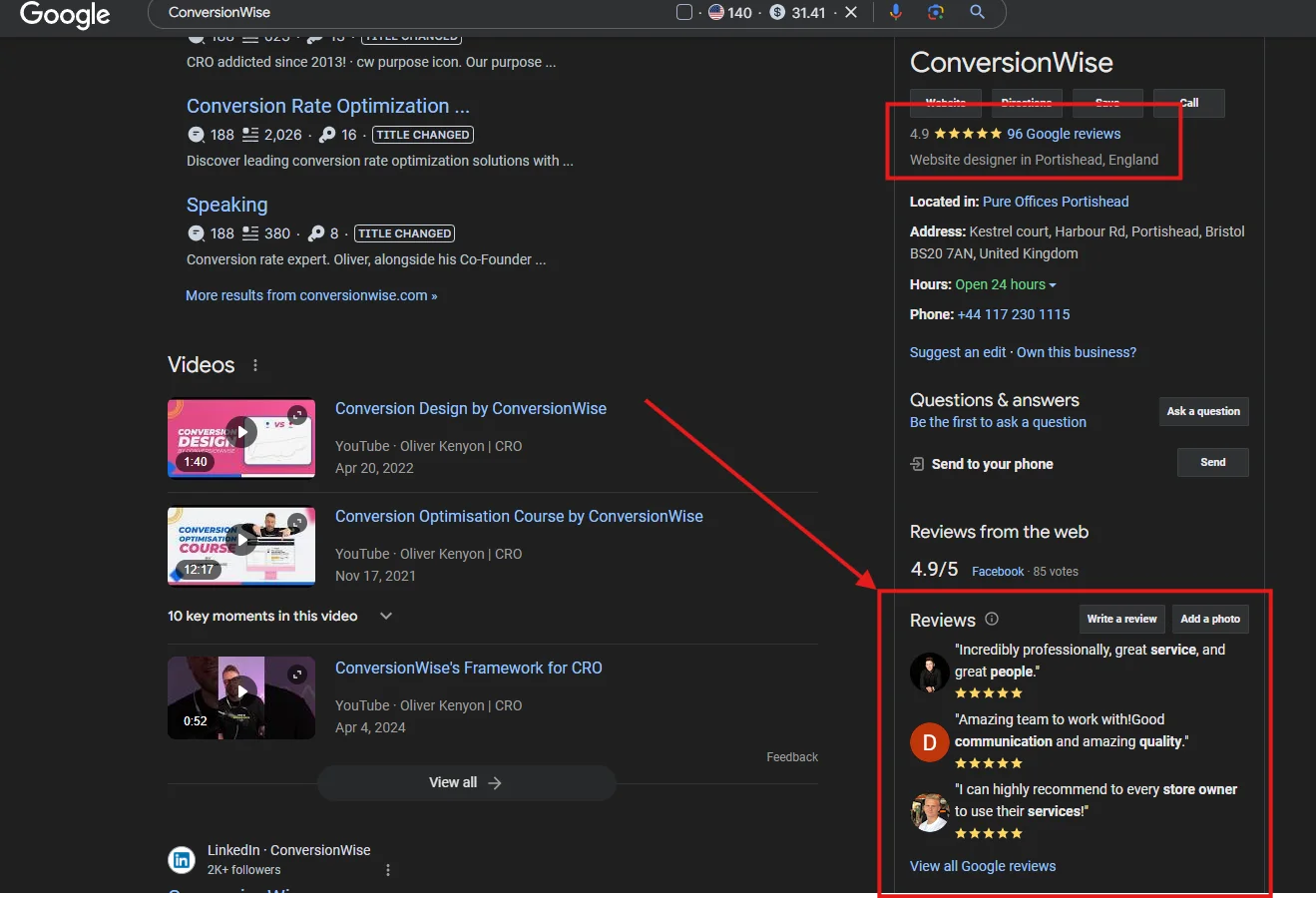
These are super powerful especially for local businesses and e-commerce brands. Potential customers rely on these reviews to decide on the quality and trustworthiness of your offerings.
Make it easy for clients to leave reviews and even offer small incentives to do so.
Testimonials
These are more detailed accounts of positive customer experiences, often with a personal story or specific results.

Testimonials are super powerful when they’re authentic and relatable.
Show them on your website, landing pages and even in your email campaigns.
Use a mix of text, video and even audio testimonials to keep it interesting.
Social media posts
Organic mentions and shares on Facebook, Instagram and X (formerly Twitter) are a treasure trove of user social proof.
Unsolicited testimonials from happy customers are powerful because they’re seen as authentic and impartial.
Monitor your social media accounts for mentions and engage with customers who are raving about you.
Case studies
For B2B businesses and those offering complex solutions, case studies are your superpower.
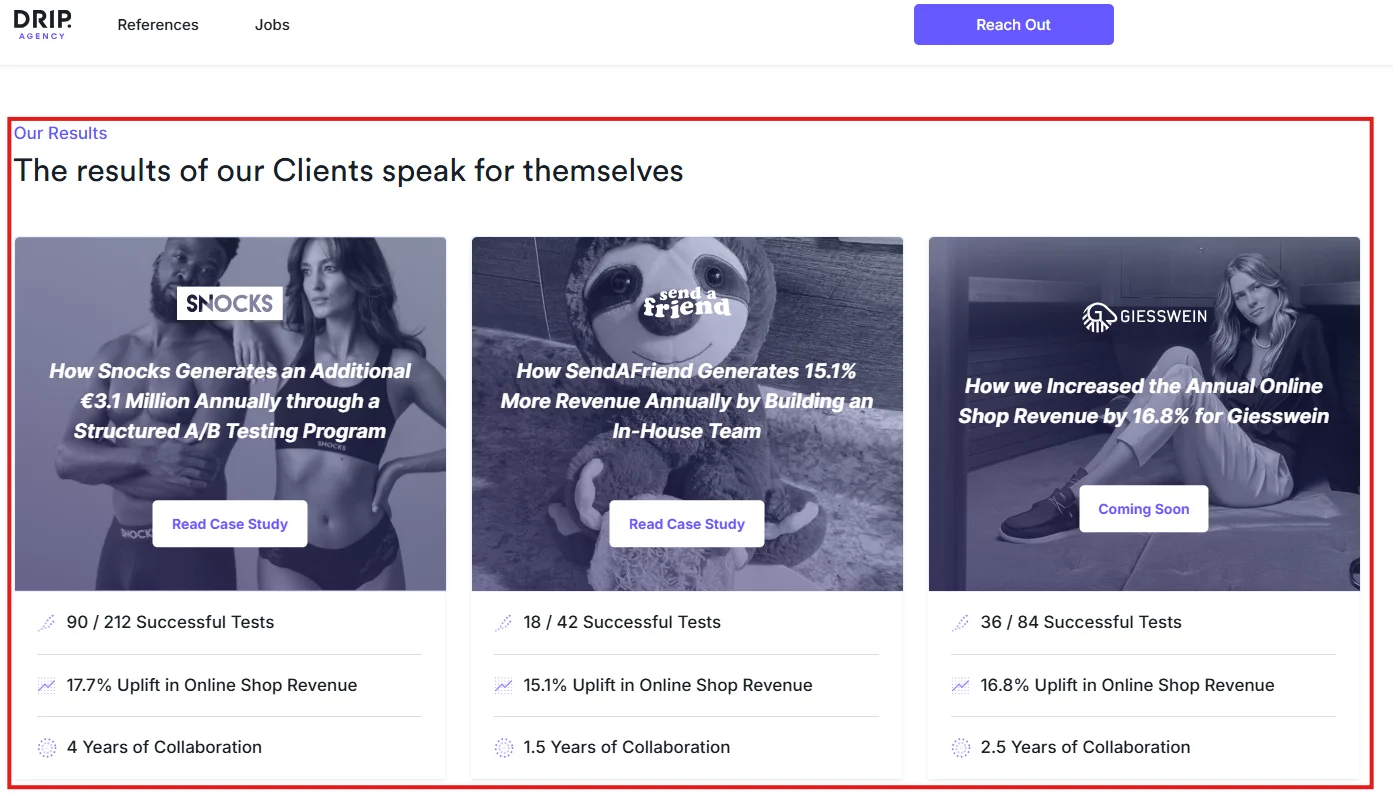
These in-depth studies show how your product or service has helped specific clients solve problems and achieve real results.
Case studies give potential customers proof of your expertise and trust in you.
User-generated content (UGC)
This is content created by your customers featuring your product or service. Think unboxing videos, Instagram photos and even TikTok dances!

UGC is super authentic and engaging and shows potential customers how real people are using and loving your offerings.
Run contests, offer incentives and make it easy for customers to share their experiences.
2. Expert social proof
Get the experts on your side and boom! Instant credibility.
This type of social proof uses the knowledge and authority of industry leaders to build trust in your brand.
Expert endorsements
Reach out to well-known experts in your space and ask for their endorsement.
This could be a quote, a review or even a collaborative project.
Showcase these endorsements on your website and in your marketing materials.

Industry awards and recognition
Don’t be afraid to show off any awards, certifications or recognition your business has received.

These are third-party validation of your expertise and quality. Display them on your website, in your email signature and even on your physical and digital marketing materials.
3. Celebrity social proof
Celebrities and influencers have a lot of influence over their followers. Partner with the right ones and you’ll expand your reach and brand awareness.
Celebrity endorsements
This can be an expensive strategy but a celebrity endorsement can be a real game-changer if the celebrity is aligned with your brand and target market.
Think carefully about who you partner with and make sure their image is in line with your brand.
Influencer marketing
Partner with influencers in your space to tap into their audience. Micro-influencers with smaller but highly engaged followings can be super effective.

Send them free products, offer exclusive discounts and ask them to create authentic content featuring your brand.
4. Wisdom of the crowd
This type of social proof plays on our herd mentality. We trust the collective opinion of a large group of people.
Popularity as proof
Don’t underestimate the power of numbers! Show the number of customers you’ve served, the number of products you’ve sold or the number of downloads your app has received. These numbers will create credibility.

Trends and bandwagons
Jump on current trends and create FOMO (fear of missing out) to get people to join the movement.
This is especially effective on the social media platforms where trends spread like wildfire.

5. Credibility social proof
Trust icons
Trust is key today. Use these to establish your credibility and reassure potential customers.

Media mentions
If you’ve been featured in reputable publications or media outlets, brag about it!
Showcase these mentions on your website and in your marketing materials to your sales funnel build credibility and expertise.
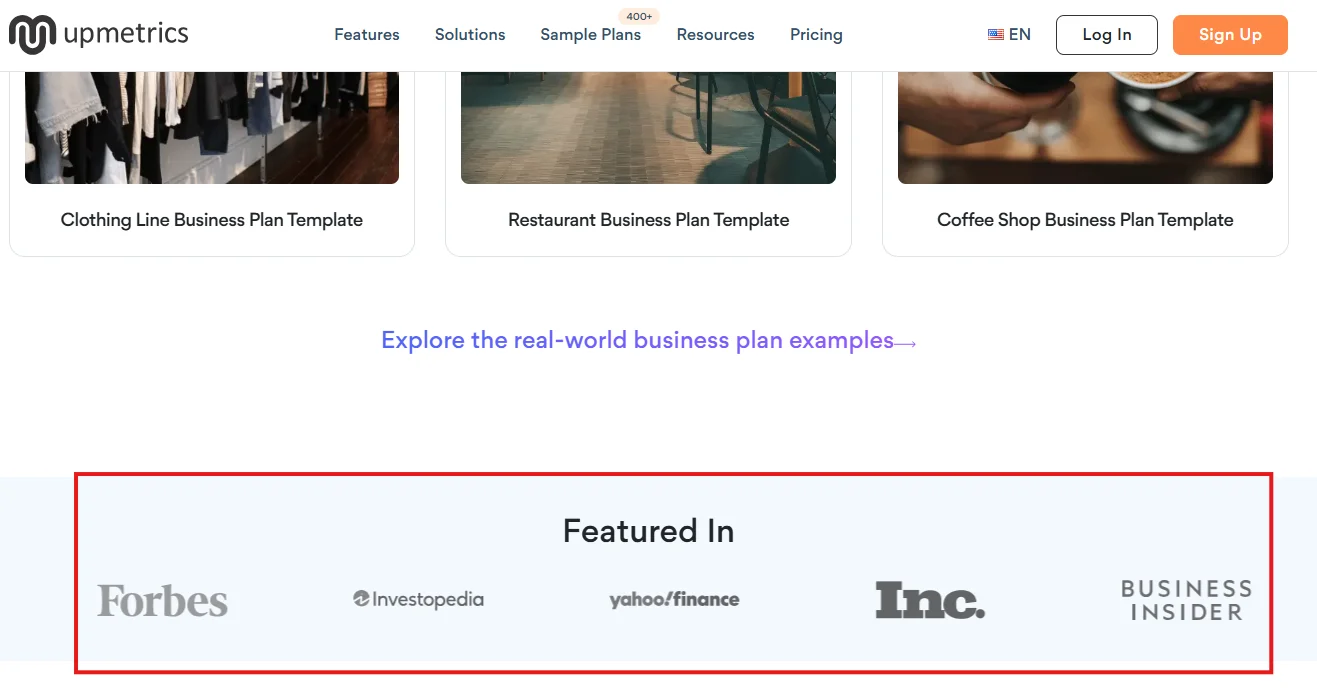
Associations with big brands
Highlight any partnerships or collaborations with well-known brands. This will instantly boost your brand’s reputation and build trust with potential customers.
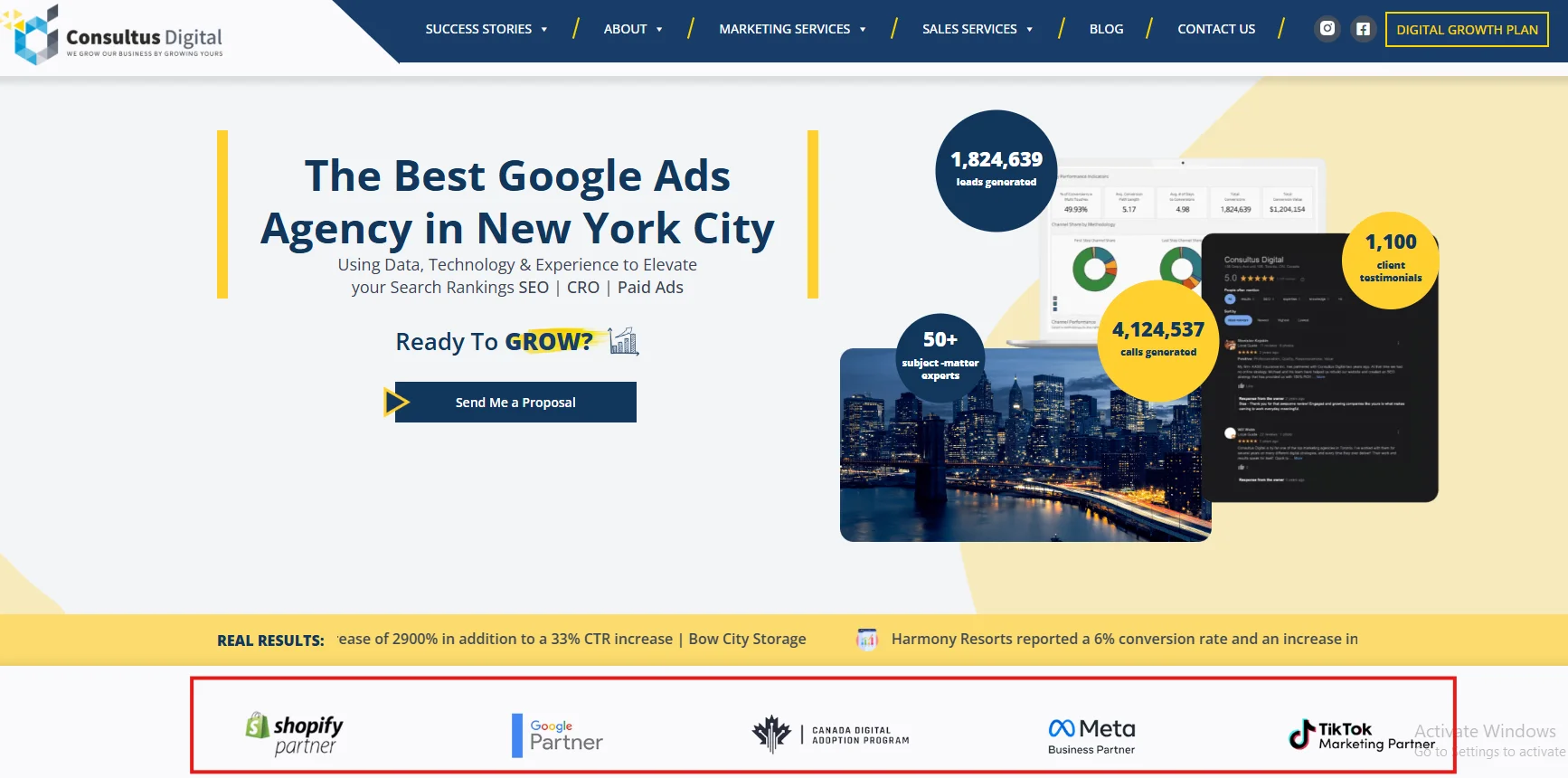
6. Friend and family social proof
Word of mouth marketing is still the most powerful form of advertising. People trust recommendations from their inner circle more than any other source.
Word-of-mouth marketing
Ask your customers to spread the word about your business through referral programs, incentives and social sharing.
Make it easy for them to share their good experiences with their friends and family.

Social sharing features
Social sharing buttons on your website and in your email marketing campaigns. Make it easy for people to share your content and products on their social media channels.

6 Ways to make social proof work for you
Now that you know the different types of social proof, let’s explore some actionable tactics to make it work for your business.
1. How to collect and showcase customer reviews
Now that you know the form of social proof, let’s get to the tactics.
First off, you need to be where customers are looking for reviews.
Claim your business profiles on major review sites like Google My Business (if you’re local!), Yelp, TripAdvisor, Facebook, Amazon and any industry specific platforms relevant to your niche.
Fill out your profiles completely and keep them up to date with accurate information.
Don’t be afraid to ask for reviews! Many customers will share their experience but just need a little push. Here are just a few examples and ideas:
1. Email Automation: Set up email sequences to trigger a review request a few days or weeks after a purchase or service interaction.

2. In-Person Requests: If you have a physical store or interact with customers directly, ask them for a review in person.

Incentives: Offer small incentives like discounts, freebies or entry into a contest to encourage customers to leave reviews. Just make sure to follow the review platform’s guidelines and don’t incentivize only positive reviews.
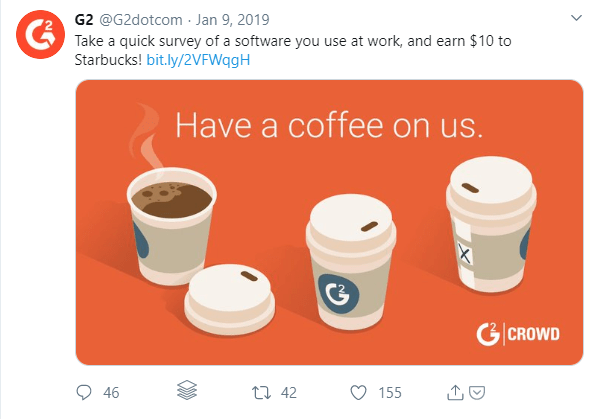
2. Using social proof on websites
Your website is social proof real estate. Here’s how to use it:
Landing Pages
I’ve designed over 100 landing pages, and one element that’s consistently featured on each one is social proof. As you might guess, it’s proven to be highly effective.
Here are some of the types we’ve been adding to our portfolio sites, and you know them very well:
Customer Testimonials: Feature powerful testimonials that highlight the benefits of your product or service and address common objections.
Social Proof Pop-ups: Use tools like WiserNotify to display real-time customer activity notifications, such as recent purchases or sign-ups.
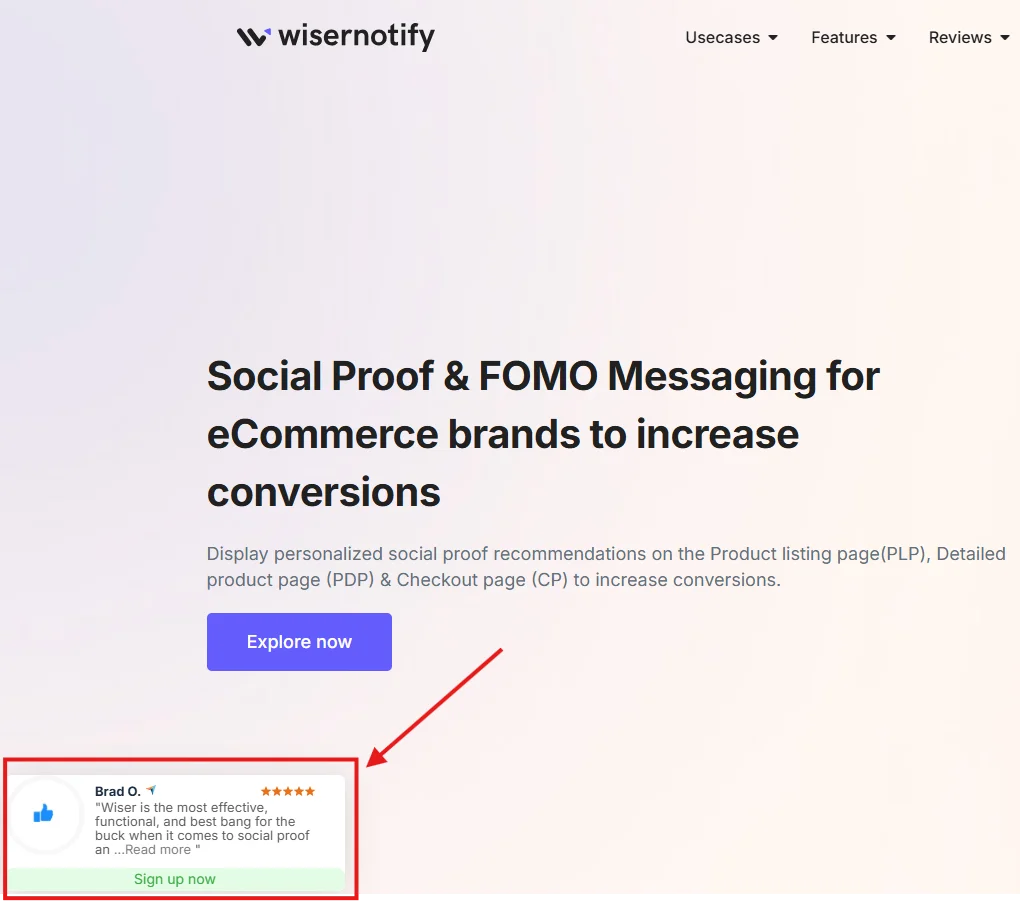
Product Pages
Based on my experience working with some of the world’s leading e-commerce brands, I’ve found that product pages and checkout pages are crucial in conversion rates. Mistakes on these pages can significantly impact revenue.
Here are some of the most effective form of social proof you can use:
Star Ratings and Reviews: Display aggregate star rating online reviews and individual reviews directly on your product pages.
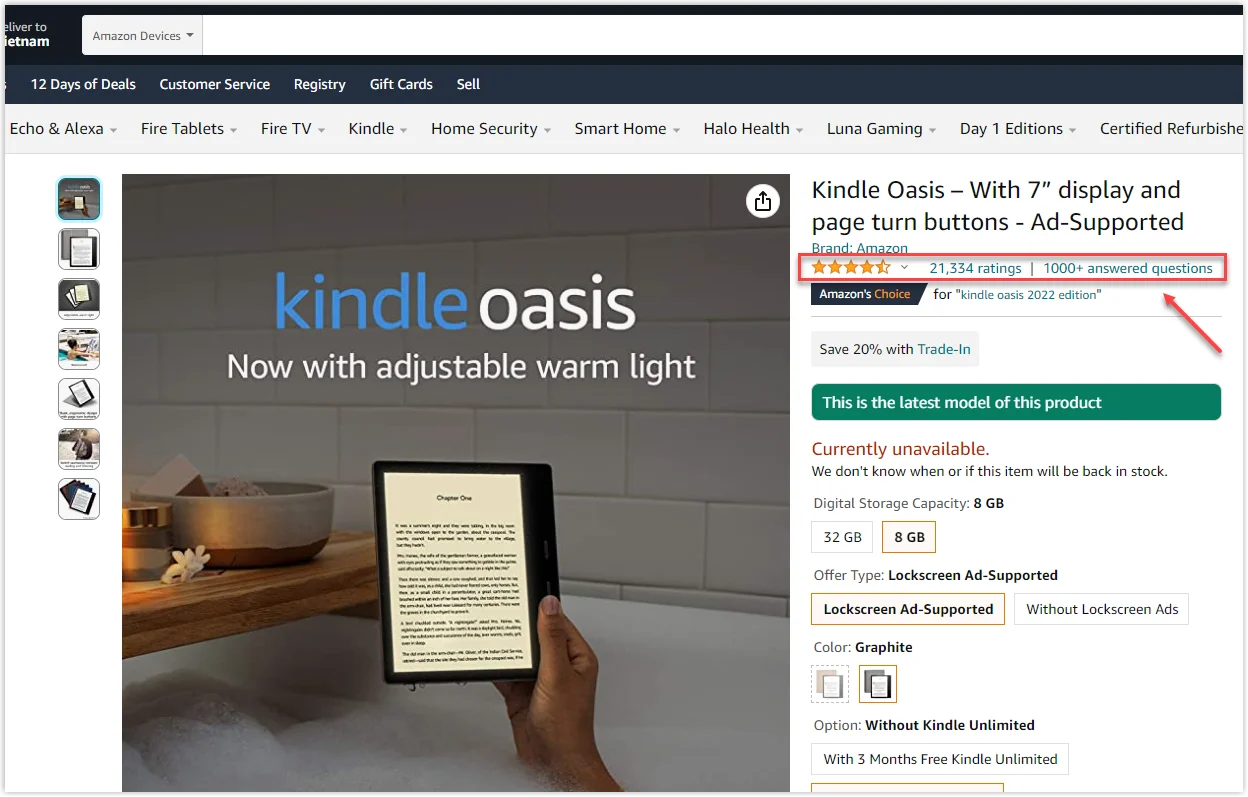
Customer Photos and Videos: Encourage customers to submit photos and videos of themselves using your products.
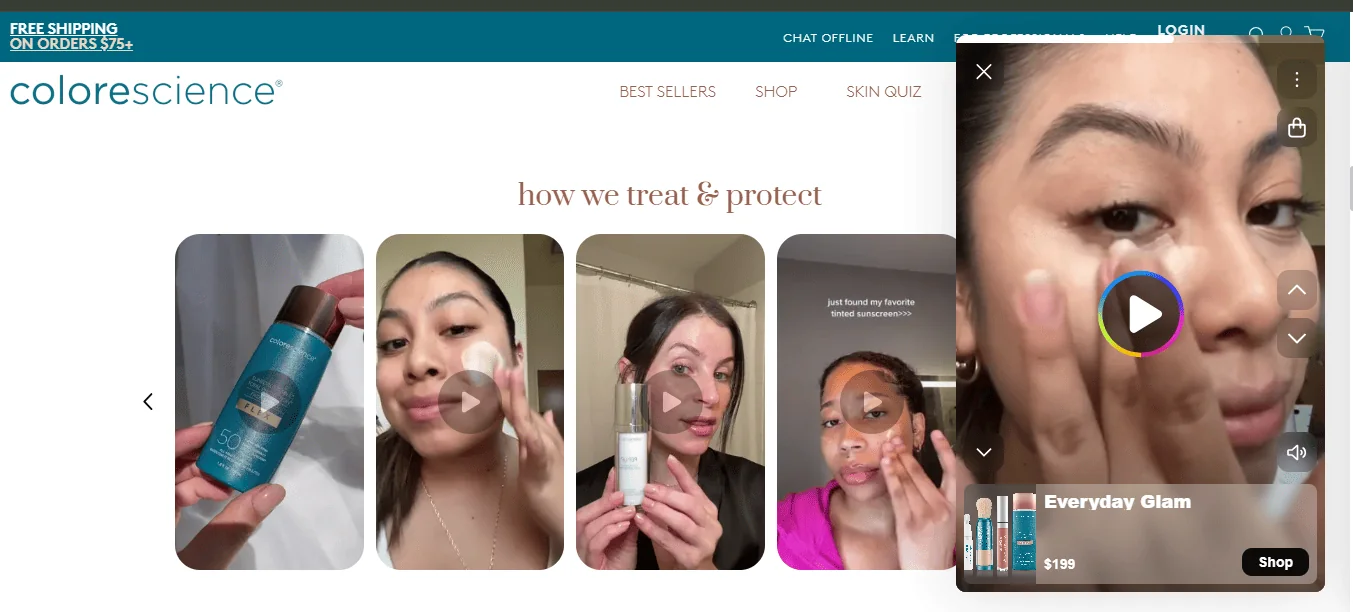
Comparison Charts: Use comparison charts to showcase how your product stacks up against the competition, highlighting positive reviews and awards.
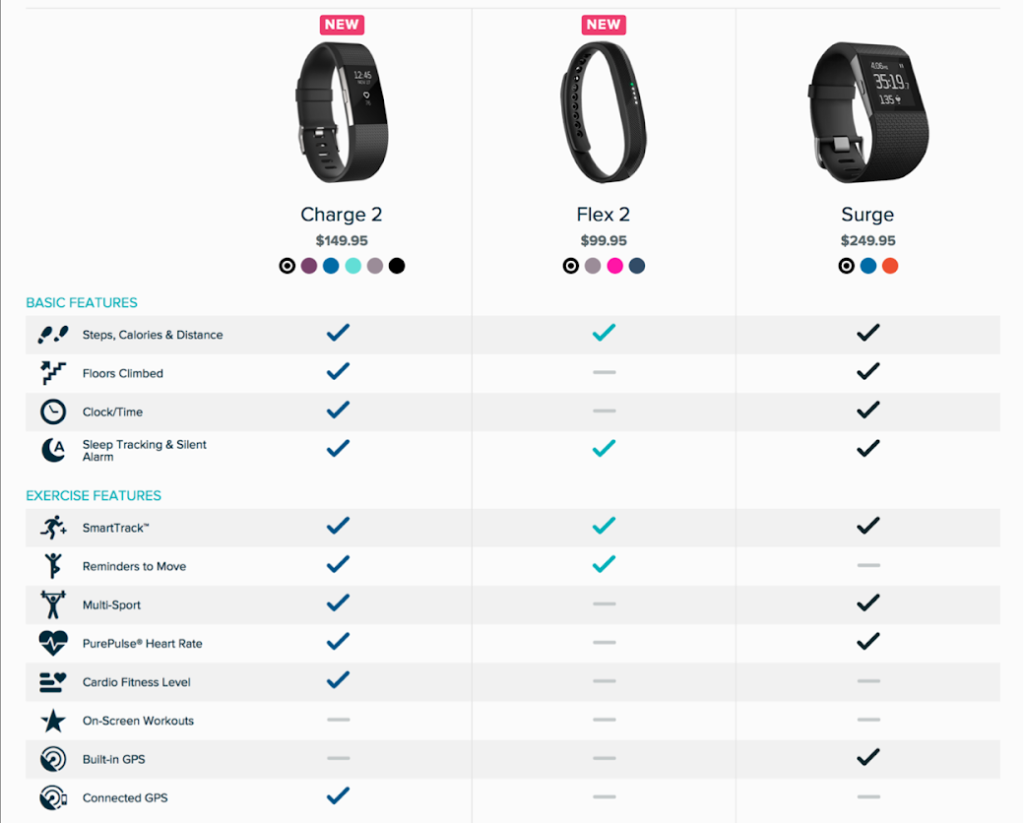
Checkout Pages
We’ve discussed how crucial checkout pages are, so we need to ensure that customers feel secure and confident when making a purchase. Nothing does a better job of achieving this than these types of social proof:
Displaying Trust Badges: Prominently feature security badges, SSL certificates, and accepted payment methods.
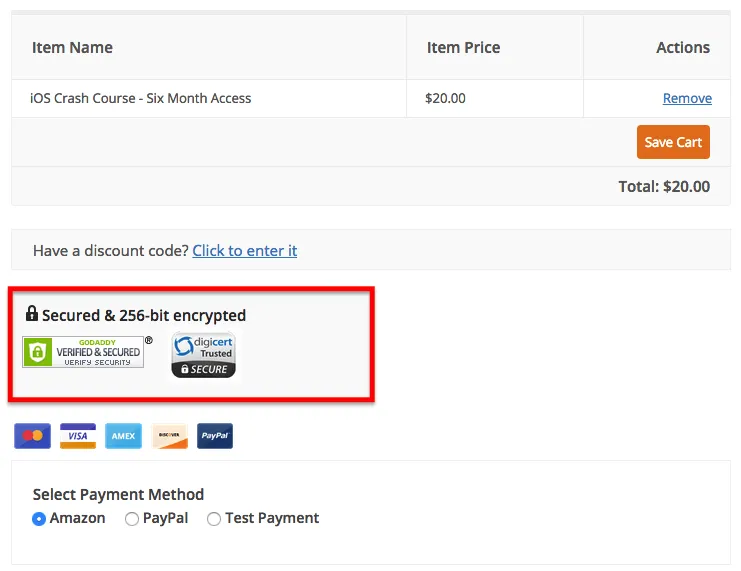
Highlighting Secure Checkout: Use clear and concise language to assure customers that their personal and financial information is safe.
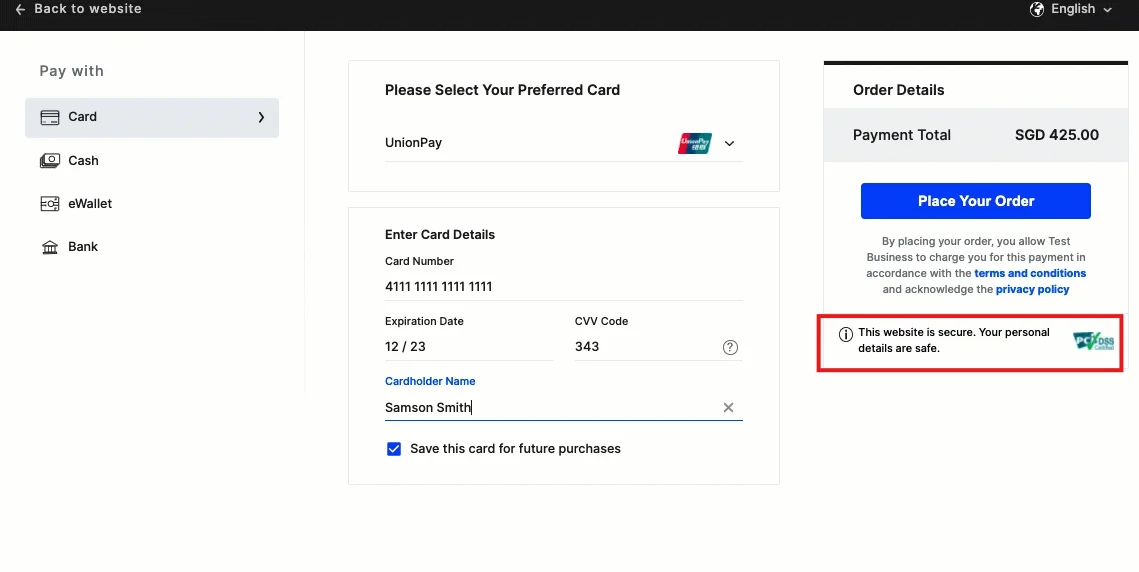
Showcasing Guarantees: If you offer a money-back guarantee or satisfaction guarantee, highlight it on your checkout page.
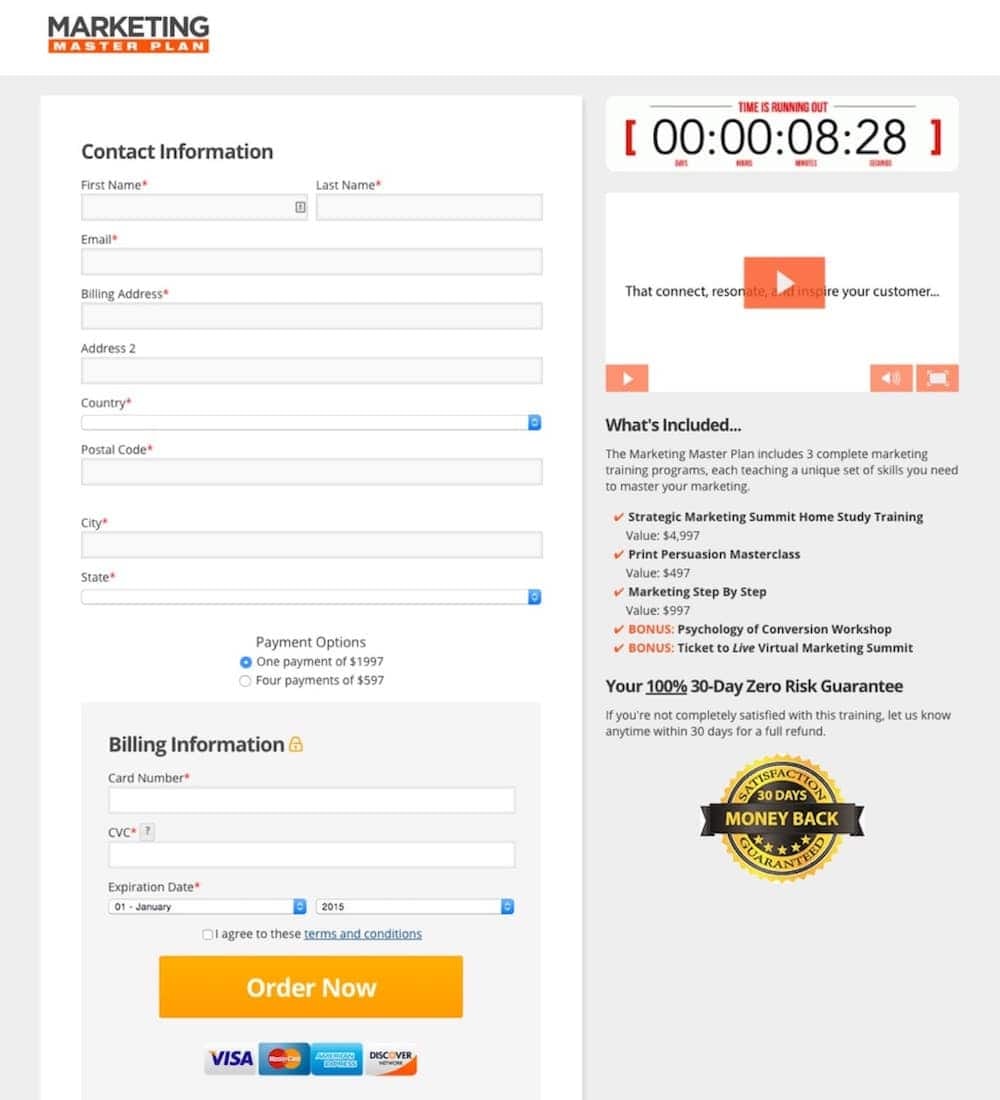
3. Social proof in advertising
In my experience, adding social proof like customer reviews or ratings can really boost your advertising campaigns.
When people see that others are happy with your product, they feel more confident and are more likely to buy from you, too.
Display Ads
Display ads aren’t as effective as other forms of advertising because they mostly target consumers who are just starting to become aware of products.
However, showing customer reviews like the ones below can build instant credibility, making your ads a worthwhile investment.
Add Customer Quote: Use short and impactful quotes from satisfied customers.

Displaying Star Ratings: Feature your product’s average star rating to convey quality instantly. This image is from the product page, but you can also display it in your Google display ads.
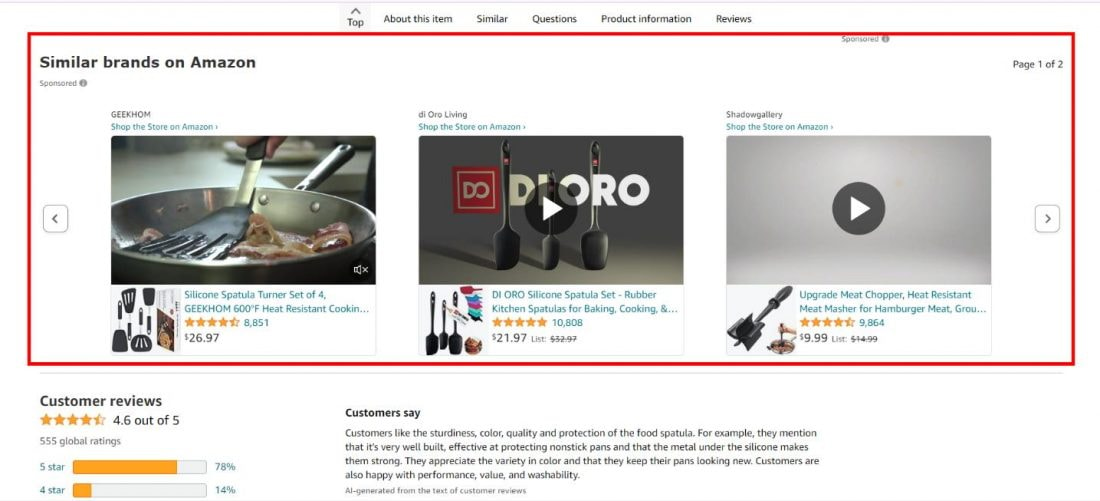
Social media ads
I suggest using social proof on Facebook, Instagram, and TikTok. Showing customer reviews and real-time activity can build trust and help you sell more.
Adding Social Proof in Ad Copy: Use phrases like “Join thousands of satisfied customers” or “As seen in [publication name].”
Using User-Generated Content: Feature authentic customer photos and videos in your ads.
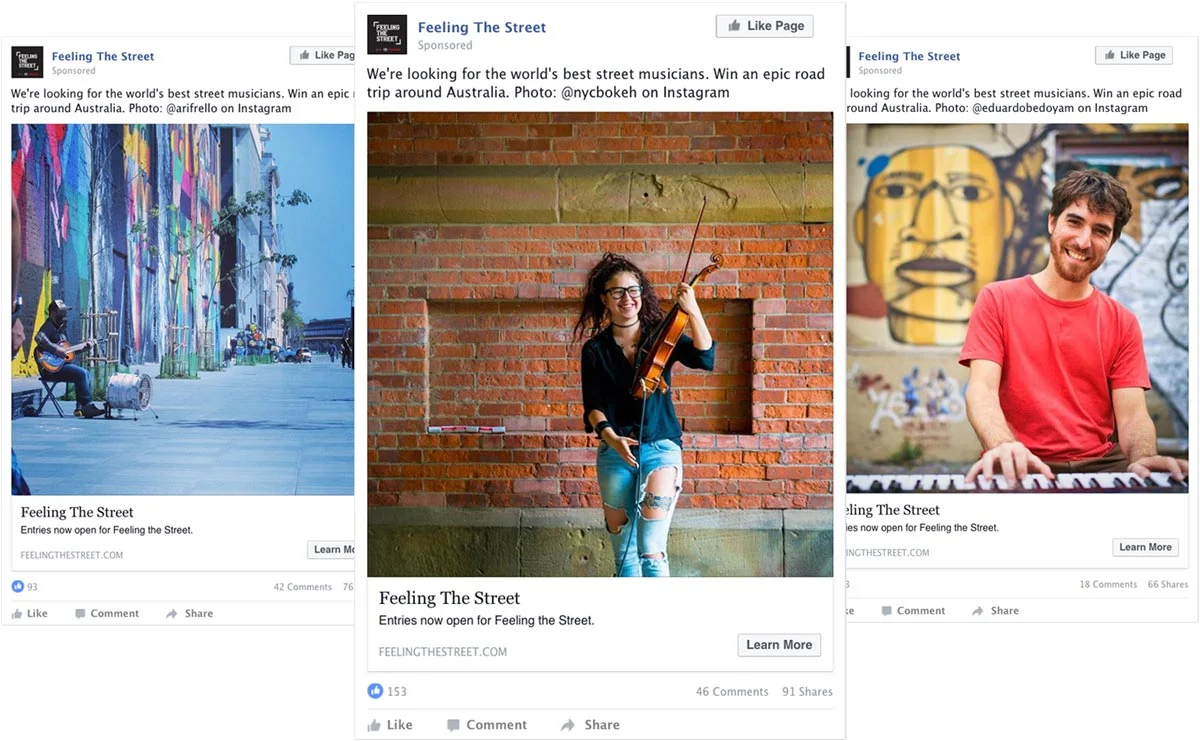
Running Social Proof Contests: Encourage engagement and generate user-generated content by running contests and giveaways.

Related: Social Proof Advertising Strategies That Increase Conversion Rate
4. Social proof in content marketing
I aim to make my content more trustworthy and engaging by improving the purchasing experience. I’ve seen that using these types of social proof works best:
Blog Posts
Including Customer Quotes: Use relevant customer quotes to support your points and add a human touch.
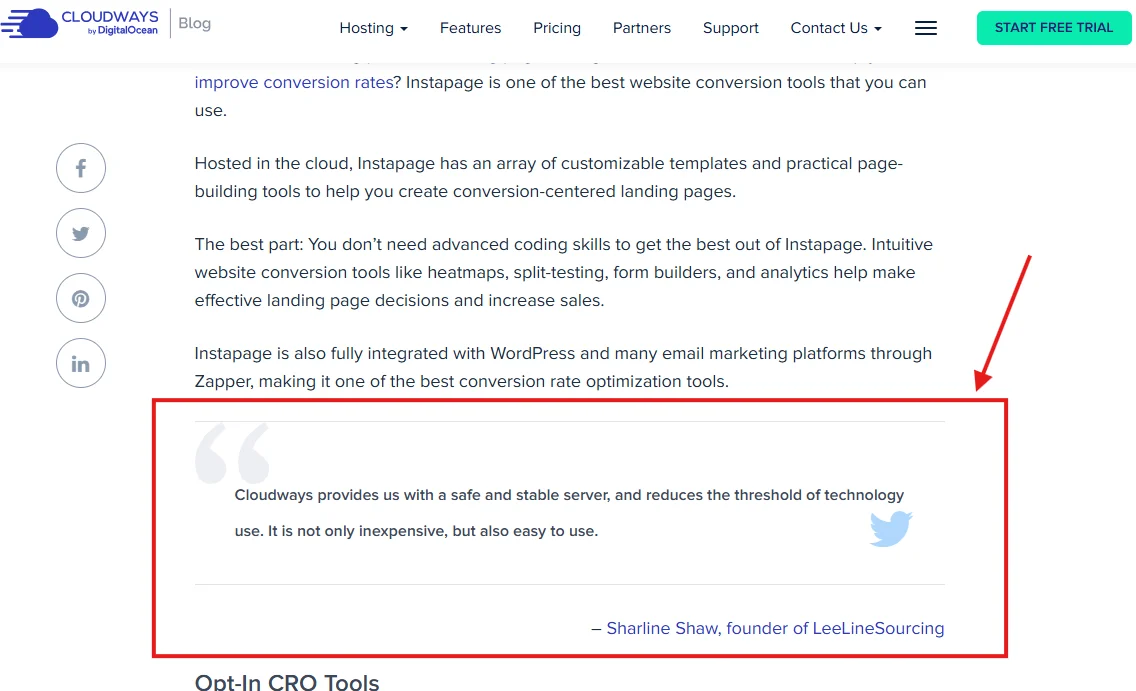
Showcasing Case Studies: Add case studies to provide real-world examples of how your product or service has helped others. This isn’t just an example for blog pages; it’s also found on the pricing page, and you can use it in blog posts as well.
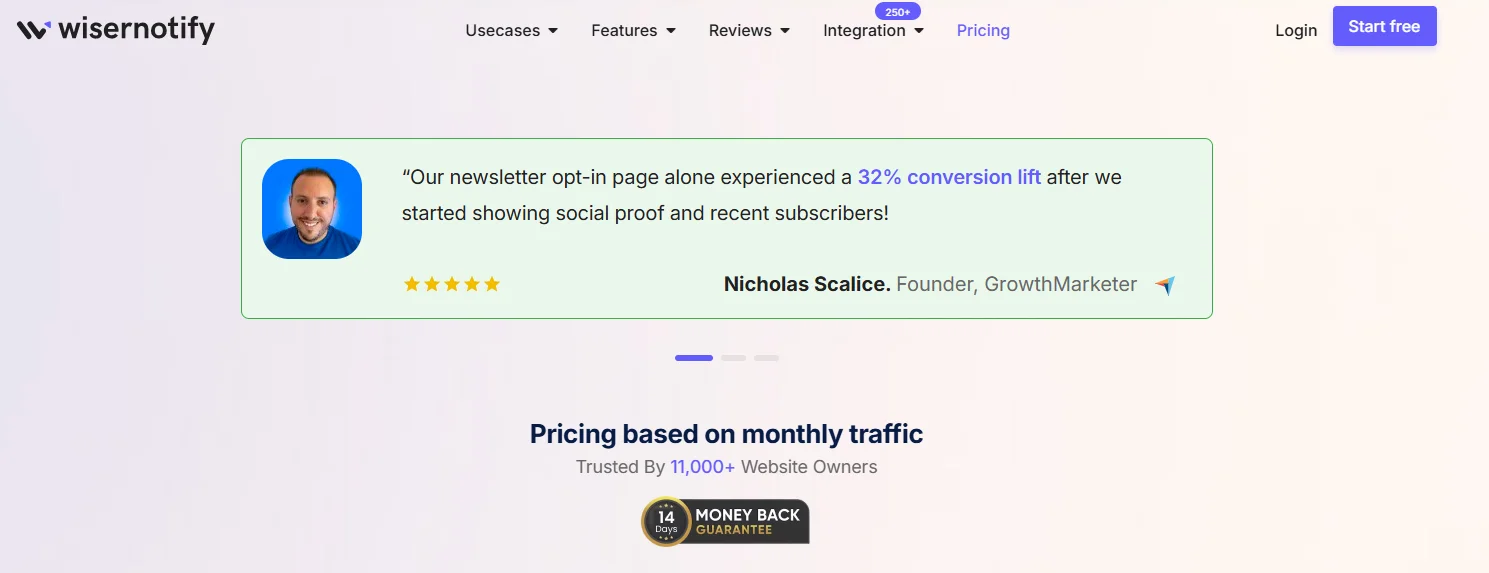
5. Social proof in email marketing
Build trust and nurture leads with social proof in your email campaigns.
Including Customer Testimonials: Share positive feedback from satisfied customers.

Using User-Generated Content: Feature customer photos and videos showcasing your products.

Sharing Case Studies: Showcase how your product or service has helped others achieve their goals.

6. Social proof in social media marketing
Social media is a hotbed for social proof. Here’s how to make the most of it:
Sharing User-Generated Content: Repost customer photos, videos, and testimonials.
Using Social Proof Targeting: Target ads to people who have liked or followed your competitors or industry leaders.
Brands winning with social proof marketing
Almost every brand, both online and offline, uses social proof. We all know how tough it can be to acquire customers without it.
Below, we’ve found some of the best social proof examples to show you.
1. Wisernotify
At WiserNotify, we don’t just teach you about the benefits of social proof marketing; we also strategically use it on our site.
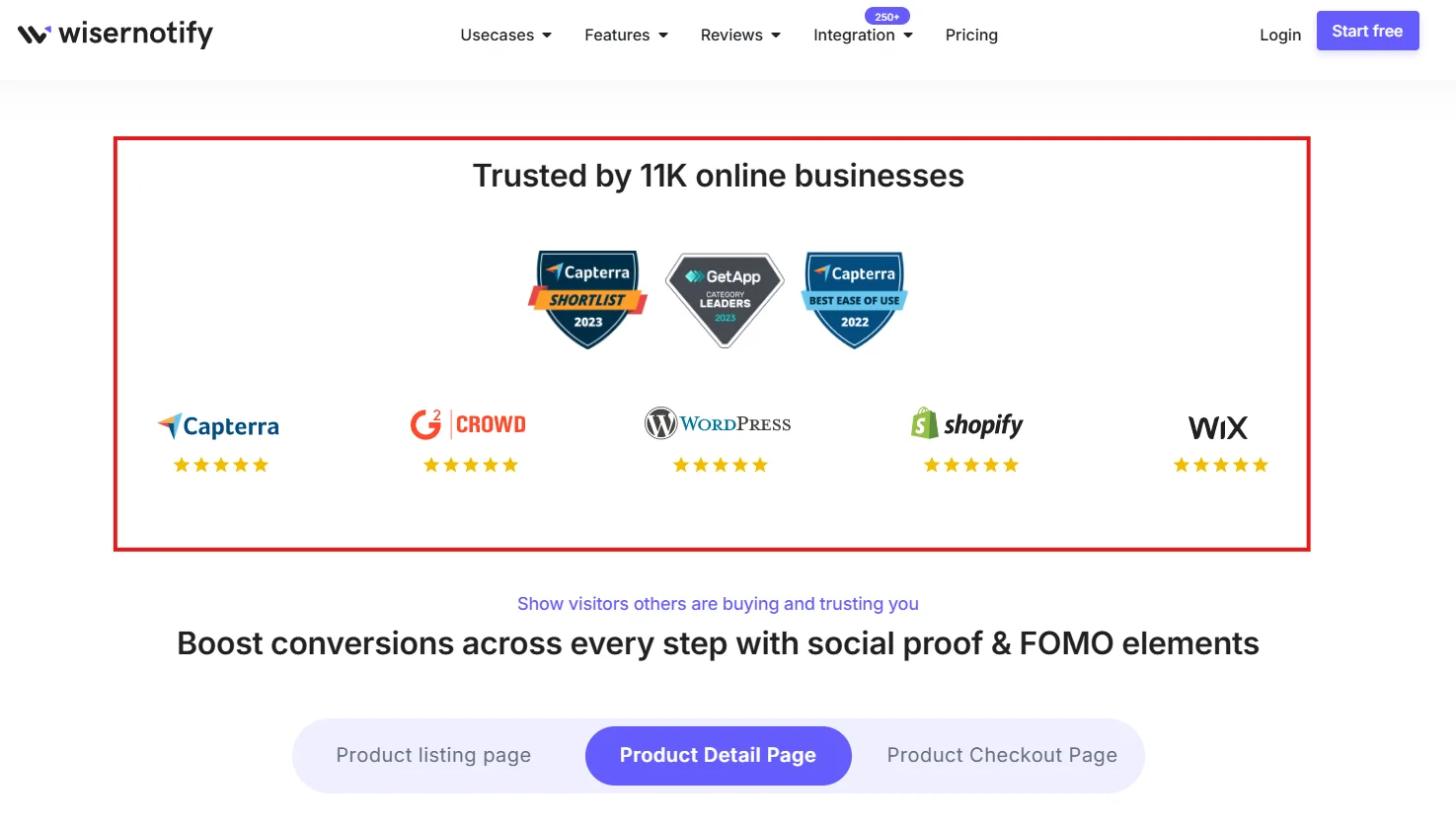
We’re trusted by over 11,000 businesses worldwide. On our homepage, right after the hero section, we showcase our ratings from software platforms and the awards we’ve won.
This allows our customers to see individual reviews and feel confident that a large number of customers trust us for their online social proof needs.
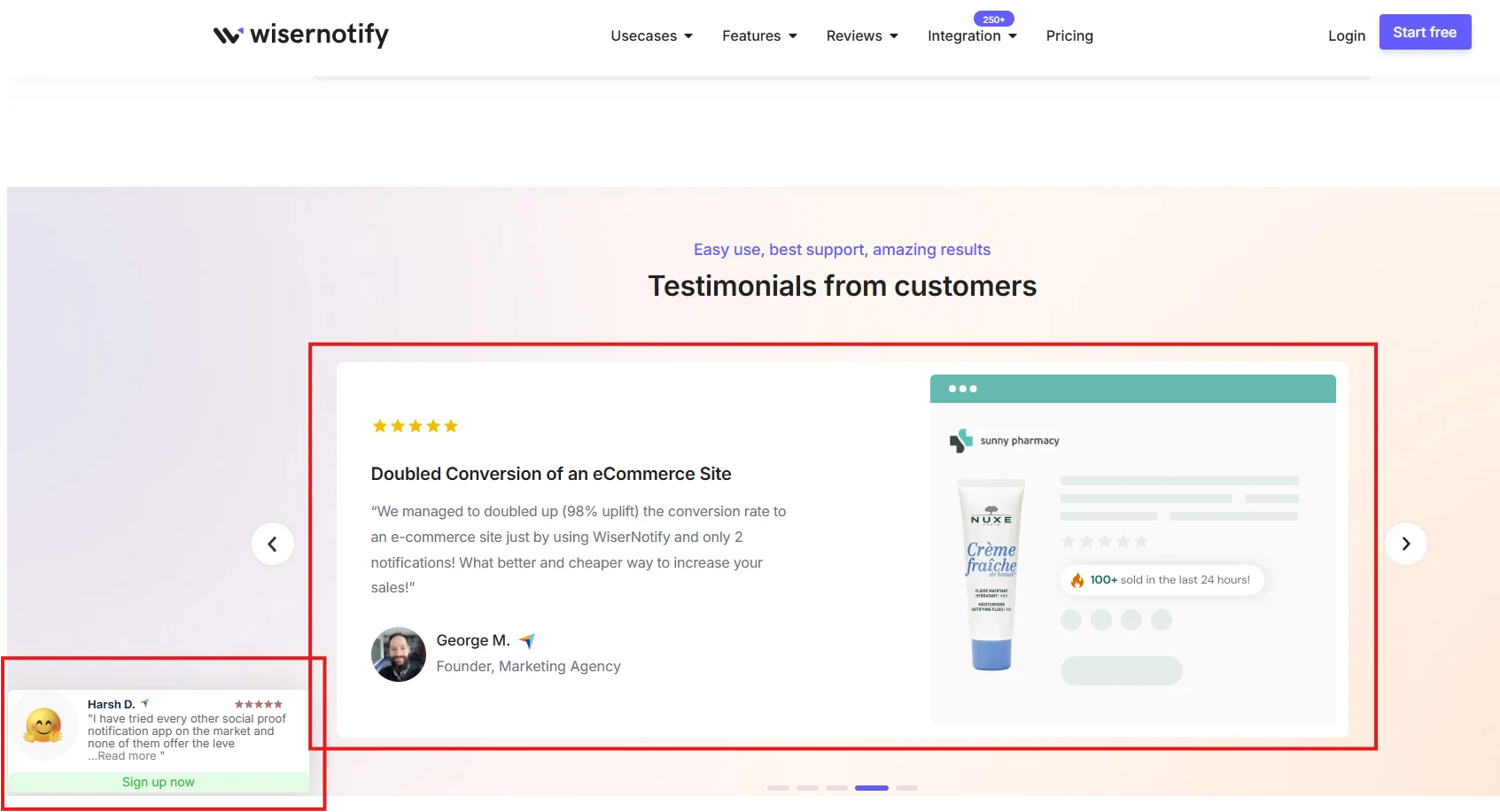
There’s nothing more impactful and persuasive than case studies showing actual users before and after they implemented our solution—this helps confirm their decision to buy.
While taking screenshots, we’ve observed social proof notifications from Google reviews pop up throughout the site, making them visible everywhere.

WiserNotify also features a dedicated ‘Wall of Love’ section, where you can see the numerous reviews we’ve received from our customers.
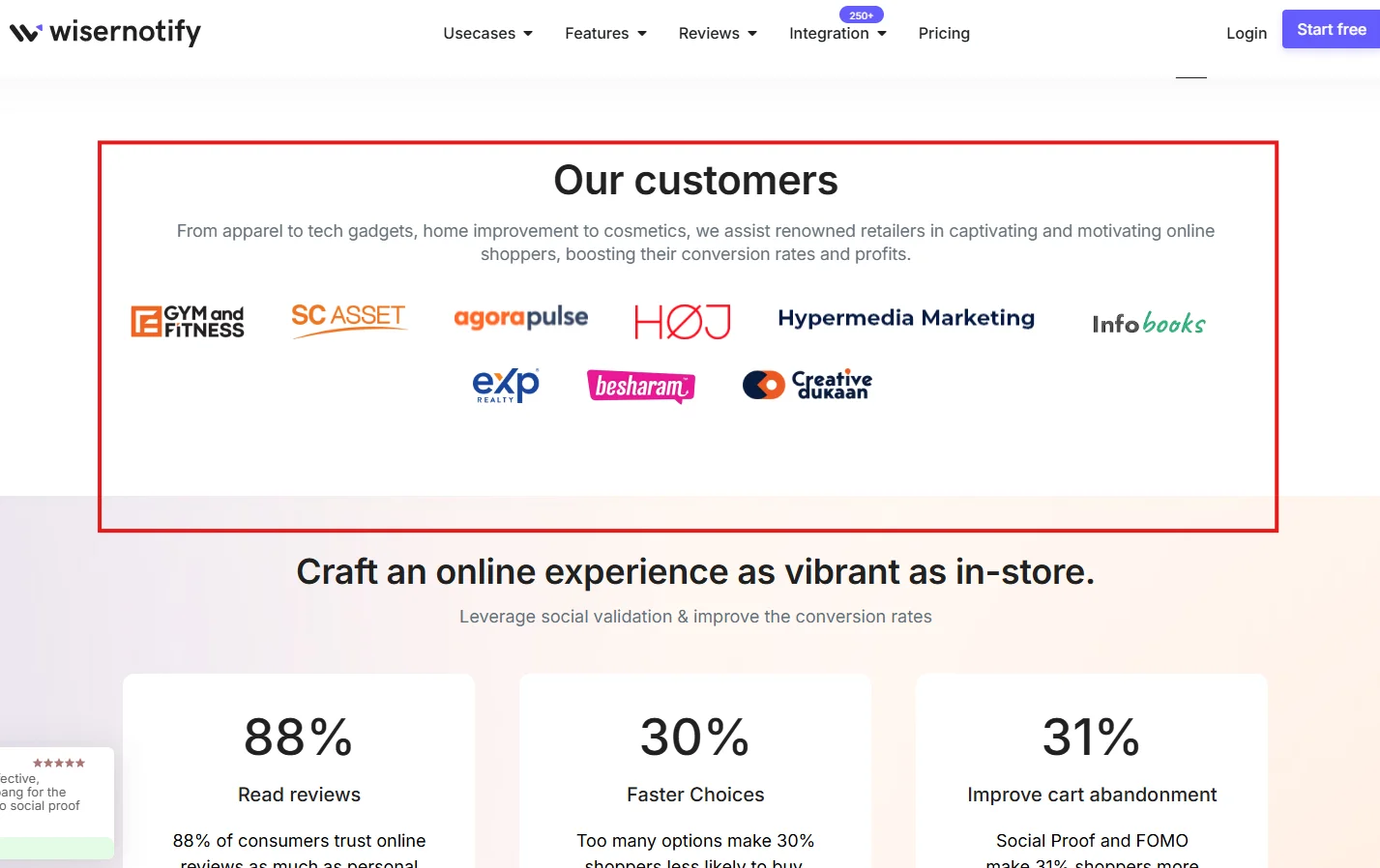
The best part? We showcase who our customers are, from big brands to SMBs, which encourages visitors to think, ‘If these successful brands are using the product, why shouldn’t I?'”
2. Upmetrics
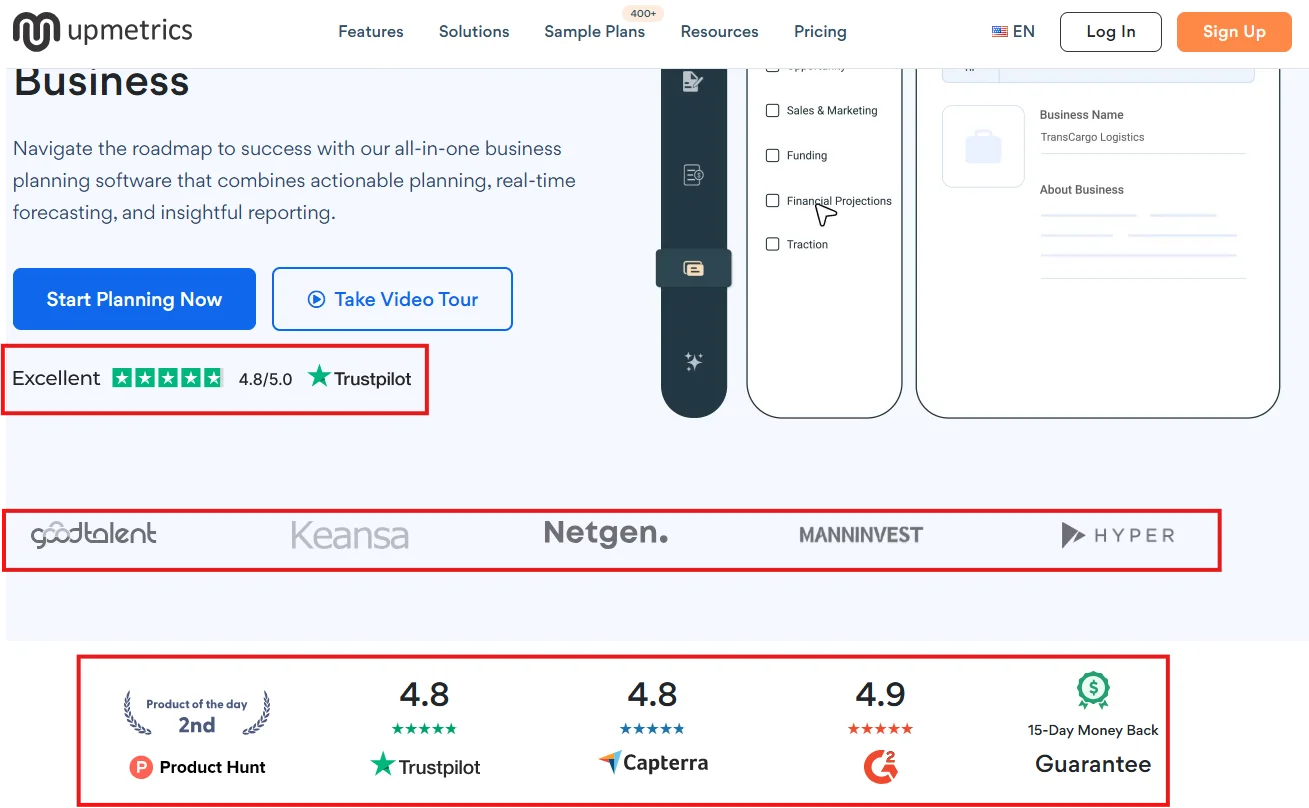
Upmetrics is a best social proof example that displays reviews and social proof from Trustpilot, showcasing how many brands use their software and providing a dedicated section for star ratings from software review sites.

They also feature customer testimonials with headshots, which are crucial in presenting real faces behind the testimonials to site visitors. They also feature press mentions on their homepage.

Lastly, they include case studies in their customer testimonials, which effectively demonstrate social proof to potential customers and give them an idea of the results they can expect.

We also talked about trust badges; notably, they offer a 15-day money-back guarantee on their pricing page, which assures customers of their secure financial commitment.
Here is more: 27 Social Proof Examples from Top Brands (You Can Steal)
The best tools for apply social proof
All excited to bring social proof to life? Here are two great tools to help you kick things up a notch.
1. Wisernotify
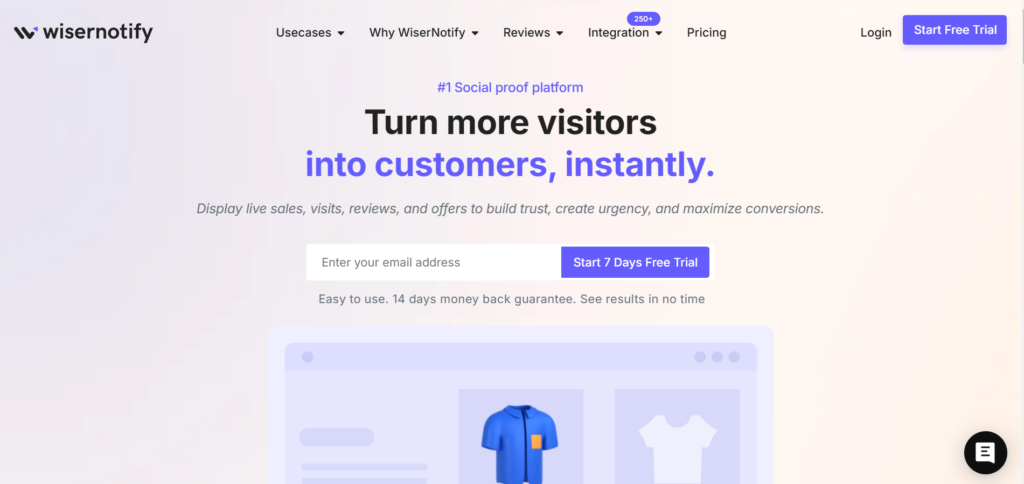
When it comes to the best social proof tools, WiserNotify is a top choice because we continuously improve it to meet today’s customer requirements.
Beyond typical social proof tools, we offer A/B testing features, over 50 notification design templates, integrations with more than 250 platforms, live chat support, and robust analytics to track the impact of social proof.
Moreover, we’re not just about social proof. We also capitalize on FOMO (Fear of Missing Out) with urgency notifications that persuade visitors to take the actions you want.
Visitors leave your website without taking action?
They don’t trust your site or feel urgency to act. WiserNotify builds both, turning doubt into action & visitors into customers.
2. Wiserreviews
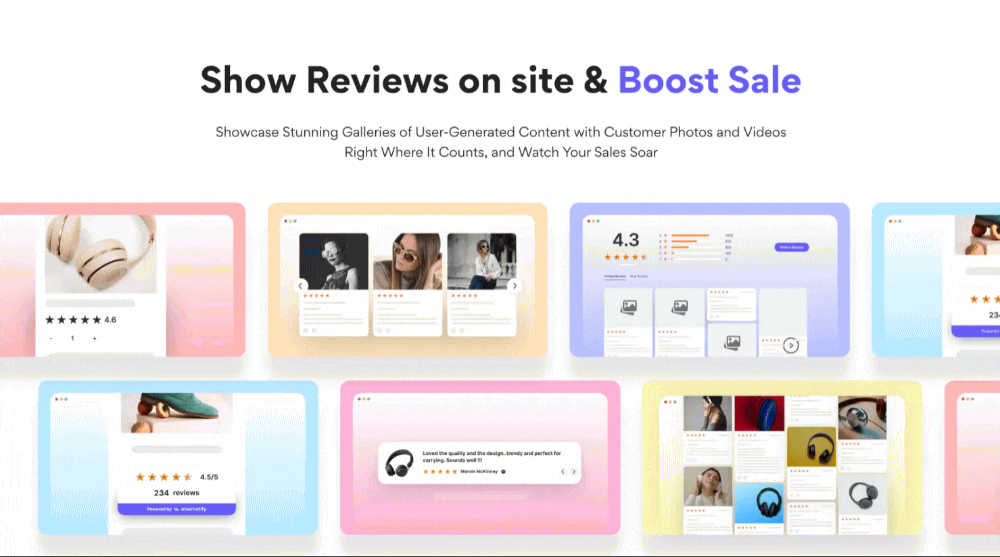
WiserReviews is a feature-rich Shopify product reviews app designed to streamline how you gather and display authentic feedback from real customers.
It automates review requests via email, SMS, or WhatsApp, so you can quickly capture star ratings and detailed testimonials. With its user-friendly dashboard, you can moderate incoming feedback, filter out spam, and highlight only the best insights on your site.
Here is more: 12 Best Social Proof Tools to Increase Website Conversion Rate
Analyzing social proof case studies that inspire
1. Schmicko
Based in Australia, Schmicko is an on-demand booking platform for mobile auto care services.
Consumers may easily book vehicle services in less than a minute by choosing their preferred package, date, and location online.
In the end, we have transformed the way Australians take care of their cars through innovative auto care ease.
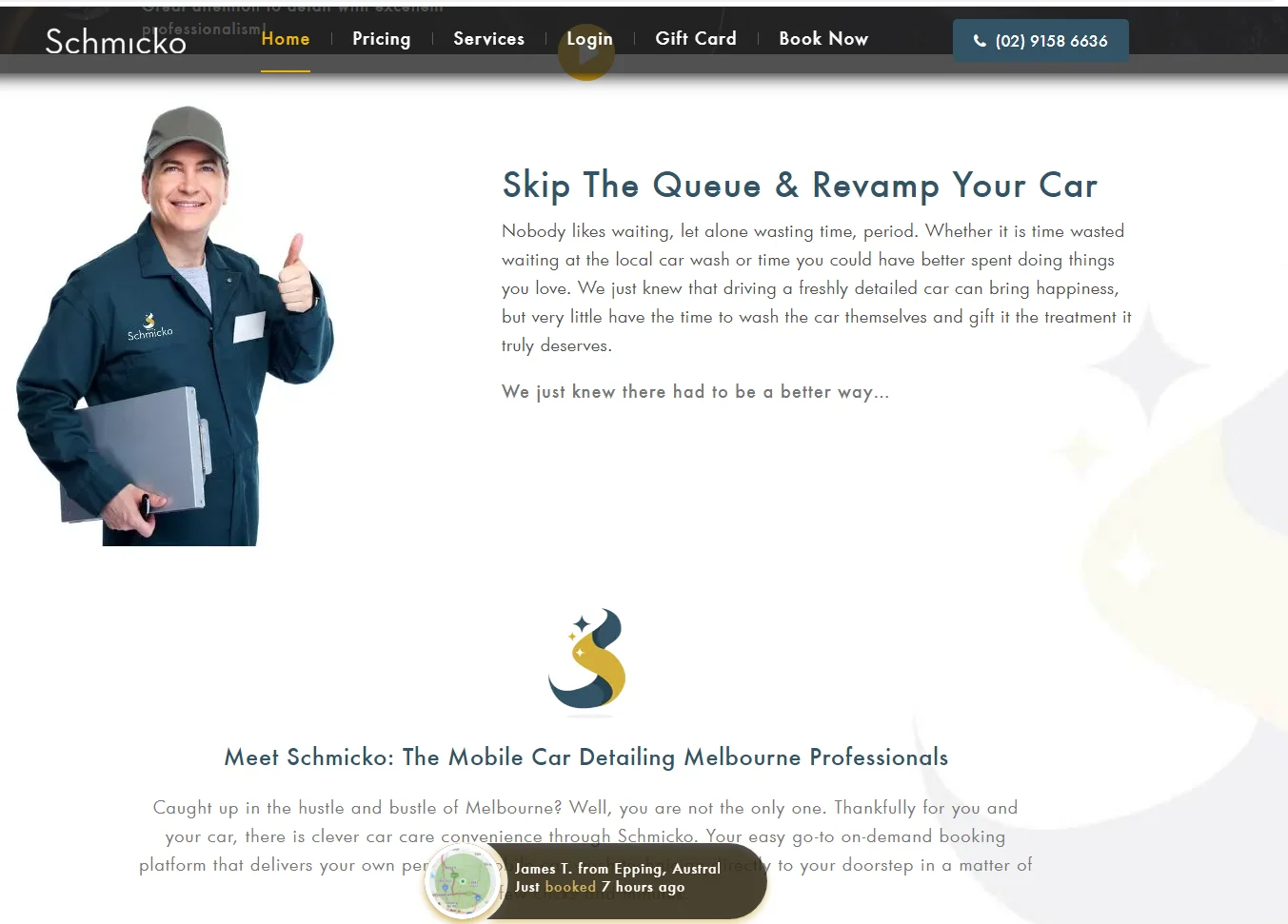
Schmicko’s goal
Schmicko aimed to expand their business and demonstrate to their website visitors the dependability and trustworthiness of their services.
How Schmicko implemented social proof?
Schmicko used WiserNotify to highlight some of their recent conversions social proof notification to reassure their website visitors that they were in the right place and that they were making the right choice.
By showing the location of each booking, they were able to establish a sense of relevance with their website visitors, knowing that someone nearby had also made a reservation in advance; this created a “local favorite” vibe.

Additionally, the map helped to demonstrate that they were a mobile service, as many traditional providers in their automotive industry typically operate from a brick-and-mortar physical location; this only served to highlight their level of coverage and expertise to occupy such a large area of our region.
This further reinforced some of their competitive advantages, which were convenience and coverage in that they come to customers.
Results
Within the first three months of joining WiserNotify, they were able to increase their number of communication leads through message and phone calls by 18%.

2. A case study from drip agency
Social proof vs. FOMO
FOMO, or “Fear of Missing Out,” focuses on the anxiety of missing something cool, good or otherwise great. It’s basically tapping into the “What if I pass on this and regret it later?”
Key Differences and Similarities
Differences: FOMO uses time limited offers and shows urgency. Social proof uses the actions of others as a signal of value.
Similarities: Both push the customer to a decision. Both can show limited availability or trending popularity – just from different angles.
Social proof vs. scarcity
Scarcity marketing is based on the principle that rare or limited resources are more appealing. Whether it’s a limited edition product or a special discount for the “first 100 customers,” scarcity gets people to act fast.
Key Differences and Similarities
Differences: Scarcity marketing is based on supply constraints or deadlines, social proof is based on widespread acceptance or success stories.
Similarities: Both increase the perceived value of an offer. Customers often end up thinking “I better do this now,” just for different reasons.
Social proof vs. authority
Authority marketing uses credentials, expertise or established brand equity to convince people. This might be the endorsement of a Harvard professor, a Fortune 500 CEO or a well known brand lending its credibility.
Key Differences and Similarities
Differences: Authority marketing is based on an expert figure. Social proof can come from an everyday user base (like your neighbor or coworker).
Similarities: Both use trust and recognition to lower the psychological barriers to buy. They work really well together – if you can show both authority and a large user base of happy returning customers, even better.
Measuring ROI and being authentic
Building trust is only half the battle; you also need to prove that your social proof efforts are actually delivering results.
After all, time and resources spent on collecting social proof and curating user generated content should move the needle on your bottom line.
Here’s how to measure ROI – while staying authentic:
Measuring social proof
Tracking Conversions: CTR, sign ups, sales after introducing new social proof elements to customer journey.
Engagement Metrics: Track likes, shares, comments and follower growth on your social channels after launching a social proof campaign.
A/B Testing: Test different types of social proof – customer reviews vs. influencer endorsements – and see what works best with your audience.
Here’s the WiserNotify dashboard, showing these metrics to make tracking your social proof marketing easy.
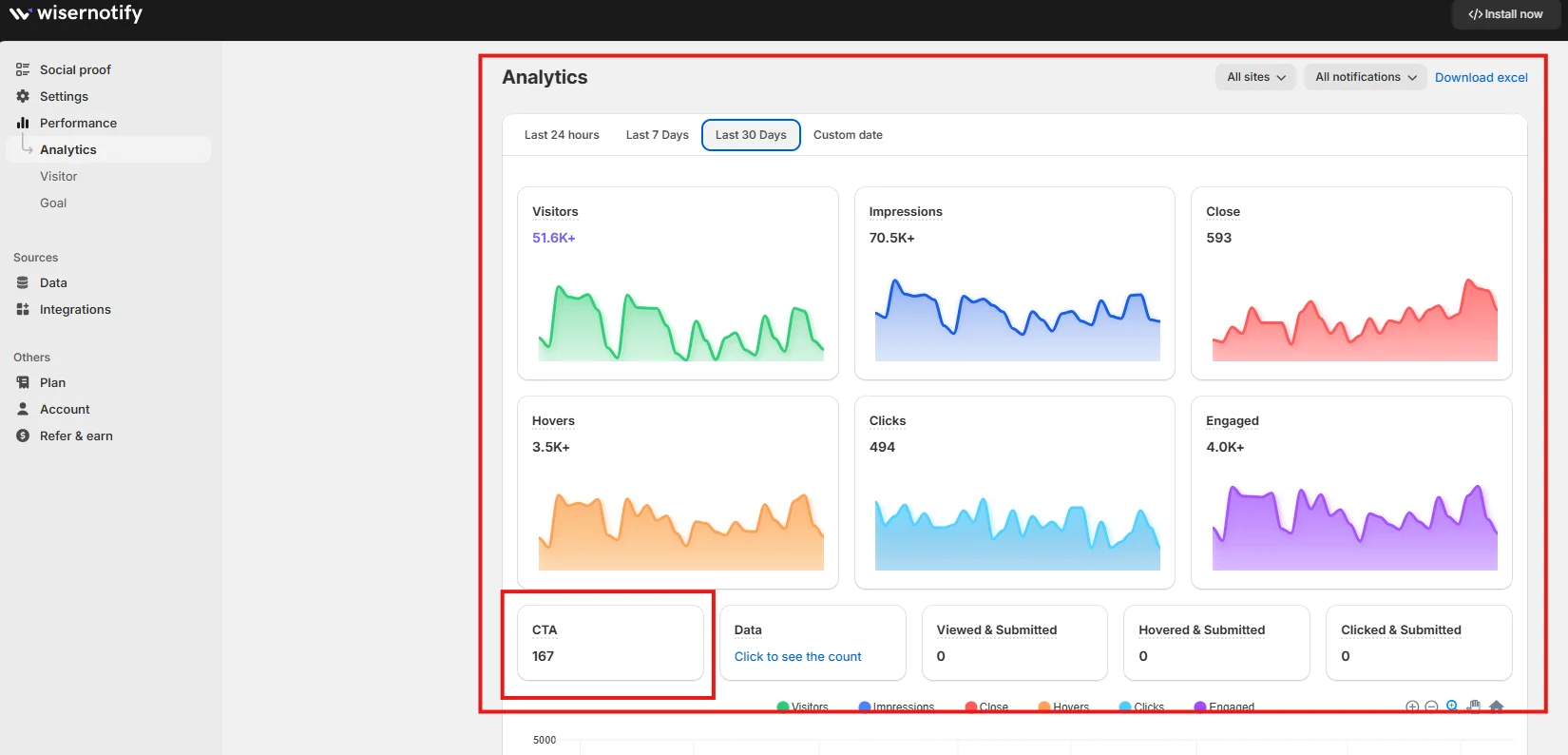
Being authentic in social proof
Don’t Fake Reviews: It’s tempting to post fake testimonials, but authenticity is key. Inauthentic claims can ruin your reputation forever.
Ask for Real Feedback: Give happy customers an easy way to leave real reviews. Negative or neutral feedback can help you improve.
Show Real People: When posting user photos or quotes, make sure to use real names, pictures or videos with their permission. This makes it believable.
3 social proof mistakes to avoid
Social proof is a big deal but can backfire if not done right. Let’s go over some common mistakes and how to avoid them:
1. The “Everyone Loves It!” mistake
Generic statements like “Everyone loves our product!” sound empty to most visitors. While it’s true many people are using your service, you need to go beyond generic claims and show real specifics.
Think data driven results, personal quotes or actual star ratings – anything that shows real feedback not a marketing slogan.
If you’re getting a lot of positive reviews, pick out concrete metrics or customer stories to make it believable. In short, let the numbers do the talking.
2. The cherry-picking
It’s easy to only show the good reviews and bury or ignore the occasional negative feedback. But transparency builds long term credibility.
Potential customers know nothing is perfect and seeing how you respond to criticism often builds more trust than a list of perfect testimonials.
Instead of hiding the not-so-great feedback, address it publicly, offer solutions or apologize where necessary. This balanced approach shows you actually care about customer satisfaction and aren’t just cherry-picking the praise.
3. Social proof overload
Too many pop-ups, rotating testimonials and busy notification bars can overwhelm visitors instead of persuading them. When every inch of your screen is competing for attention, your audience will tune it all out.
Instead, position your proof elements – maybe a review carousel on the homepage and select pop-ups on product or checkout pages.
Keep it simple and only show the most important content. A focused approach means your social proof elements enhance the user experience without overpowering it.
Conclusion
You now know how powerful social proof is – whether it’s customer reviews, influencer shoutouts or expert endorsements.
Ultimately people trust real experiences more than any marketing message. When you implement these 6 strategies across your website, ads and social media channels, you’ll give shoppers the confidence to hit “Buy”.
Above all, be authentic and relevant: let real stories, visible numbers and genuine endorsements speak for your brand. That’s how social proof leads to more conversions, deeper loyalty and a credibility driven business.



